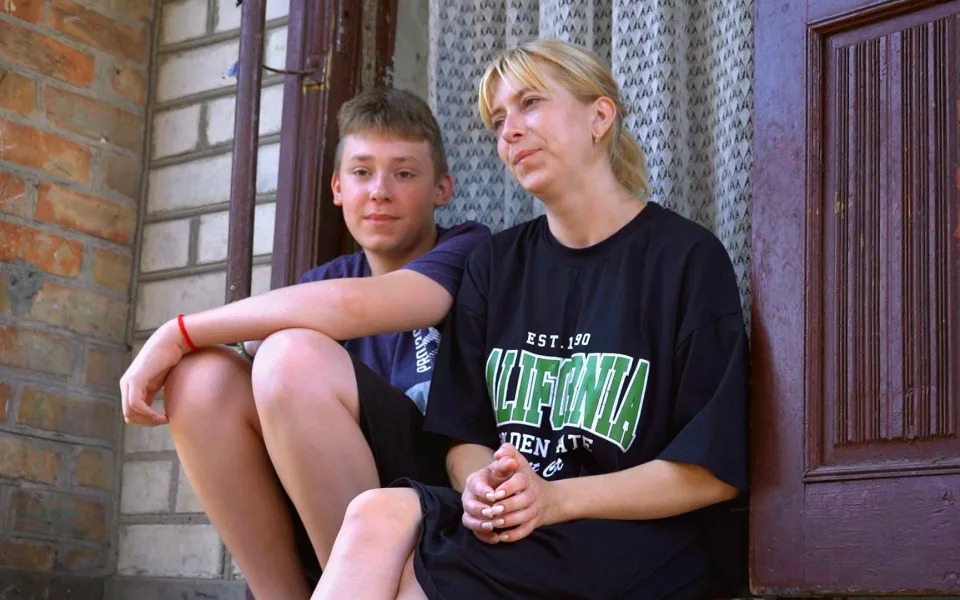Anita Singh
Mon, 23 October 2023

14-year-old Danii with his mother Alla in Kherson, Ukraine - ITV
With the focus now on Israel and Gaza, Ukraine has fallen down the news agenda. Perhaps that is why ITV1 chose not to promote Ukraine’s Stolen Children from the 10.45pm slot reserved for its Exposure strand. The documentary felt a little rough and ready, with the air of an extended news item. But it told an important story about children taken from Ukraine by the Russian authorities, and the efforts of their relatives to bring them home.
According to Shahida Tulaganova’s film, this is a tale of alleged “abduction and indoctrination”. Some of the children, for example, were taken to Russian “holiday camps” as respite from the conflict. One boy, Kostya, pleaded to be allowed to go, because it sounded exciting. The children thought they’d be staying for a couple of weeks. But when that date passed, they were told that they would not be going home. It was “not safe” to return. Desperate parents tried and failed to get in contact.
According to some of the children interviewed here, they were soon moved to a prison-like environment, where they were required to speak Russian and sing patriotic Russian songs. Anything connected to Ukraine was forbidden. The months dragged on. “They said Santa would arrive by boat,” one girl recalled. “The next day we woke up at six and started looking for our presents. We checked every room… they said Santa didn’t make it.”
Some parents managed to get their children back with the aid of a charity, Save Ukraine. The cameras followed one of these journeys. But a woman who attempted to reach her 17-year-old godson was turned back. That boy, Denis, now appears in Russian propaganda videos talking about “our President” Putin. In calls home, he spoke of being well-fed and clothed, and being given a voucher to buy a property. The programme alleged that Russia wants to keep boys of Denis’s age so that they can be drafted at 18.
Into the film came Maria Lvova-Belova, Putin’s children’s commissioner and a woman who could have come straight from Roald Dahl’s The Witches. She granted Tulaganova an interview and smoothly batted away all of the allegations about children being indoctrinated. Russia is doing “all we can” to reunite children with their families. Anyone who says otherwise is trying to “demonise” Russia.
Lvova-Belova has many foster children, including a Ukrainian teenager from Russian-occupied Mariupol. His mother died when he was young, he didn’t know his father, and he had been raised in care. “Maria, my beloved mother, she’s the person I’ve been missing my whole life,” he said, eyes shining. His appearance, under the watchful eye of Lvova-Belova’s press officer, was unsettling.
No comments:
Post a Comment